This tool eliminates the need for filter suggestions and helps you design low-pass, high-pass or band-pass filters with the required features with shorter preparation times (Figure 1). In addition, it provides a rigorous analysis of the theoretical and practical performance of the filter.
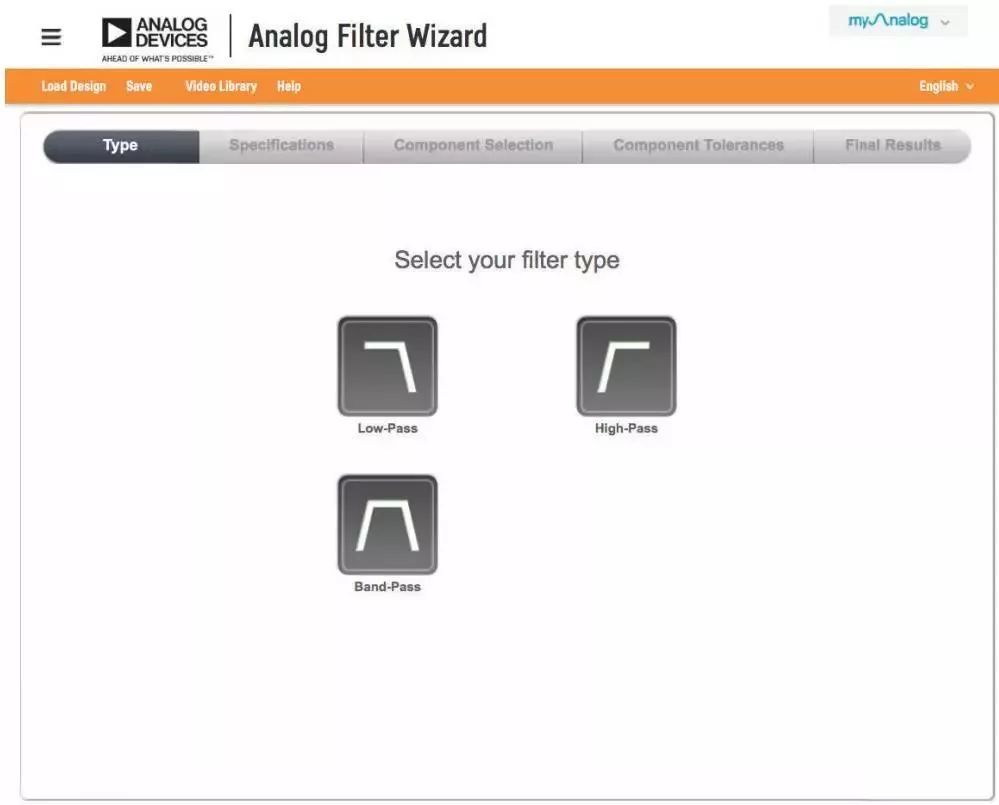 |
Figure 1. Filter type
What is the working principle of the Filter Design Wizard?
Are these recommendations based only on passband and stopband definitions?
No, it doesn't stop there. It covers the entire process from defining characteristics to filter response characteristics, as shown in Figure 2. You can use this option to select the type of filter response (such as Butterworth, Bezier, Chebyshev, etc.) to define the transition from passband to stopband. You can also choose between a less-level circuit topology or a quick setup circuit topology.
 |
Figure 2. Defining properties in the amplitude view
Through a variety of available views (such as amplitude, phase, step response, power, and noise), the Analog Filter Wizard tool lets you check for performance changes when feature parameters change. As shown in Figures 2 and 3, the amplitude and phase views can help you understand the phase and amplitude effects of the signal.
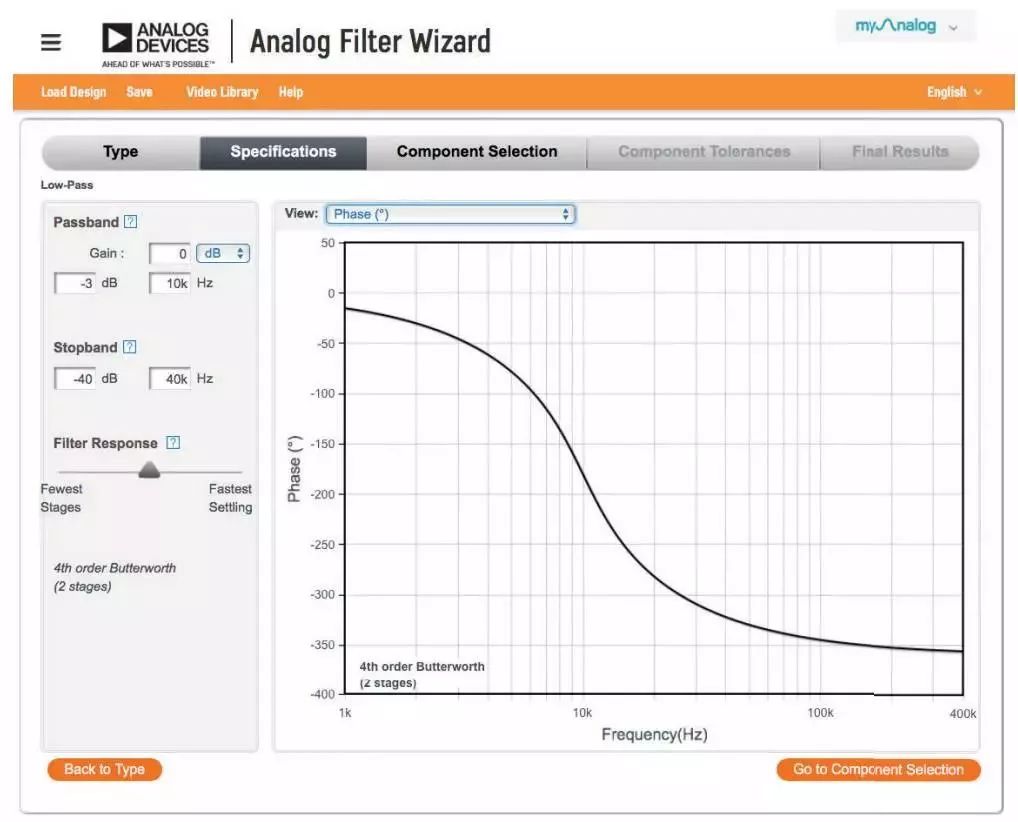 |
Figure 3. Phase view
The level view shows the characteristic parameters of the op amp filter and their characteristics (Figure 4). This view makes it easy to grade the filter.
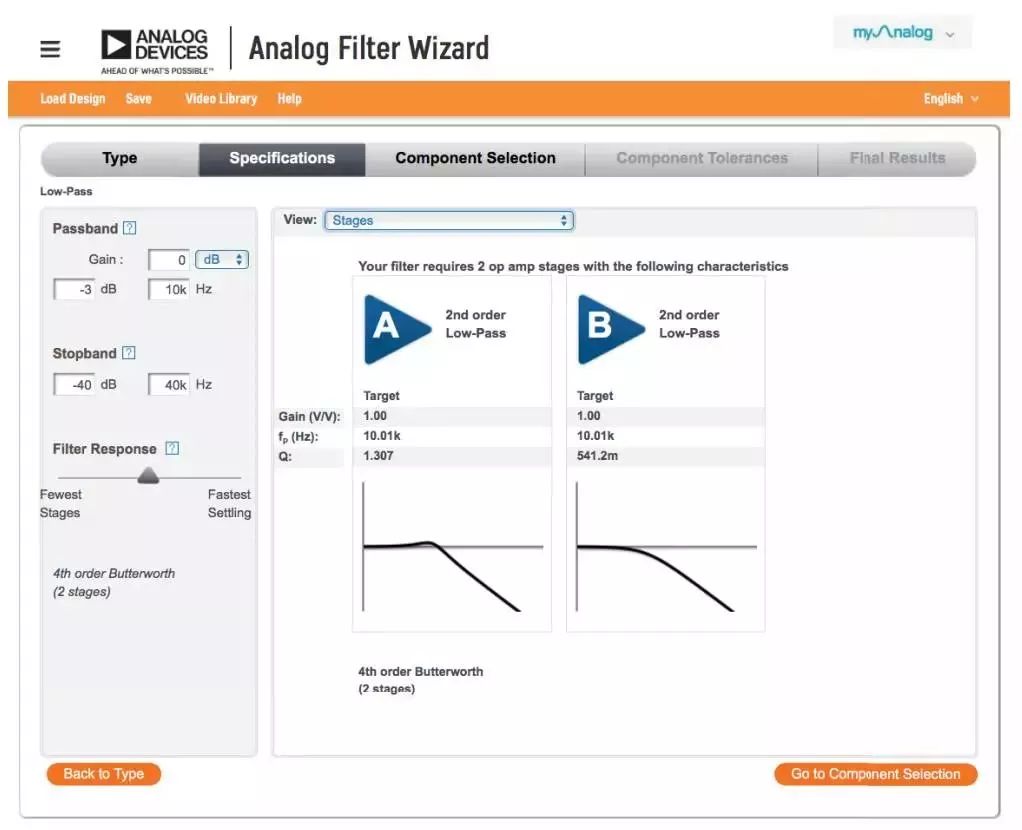 |
Figure 4. Filter level view
Overshoot and ringing define the distortion of the waveform, which can be analyzed by the filter step response obtained from the step response view (Figure 5).
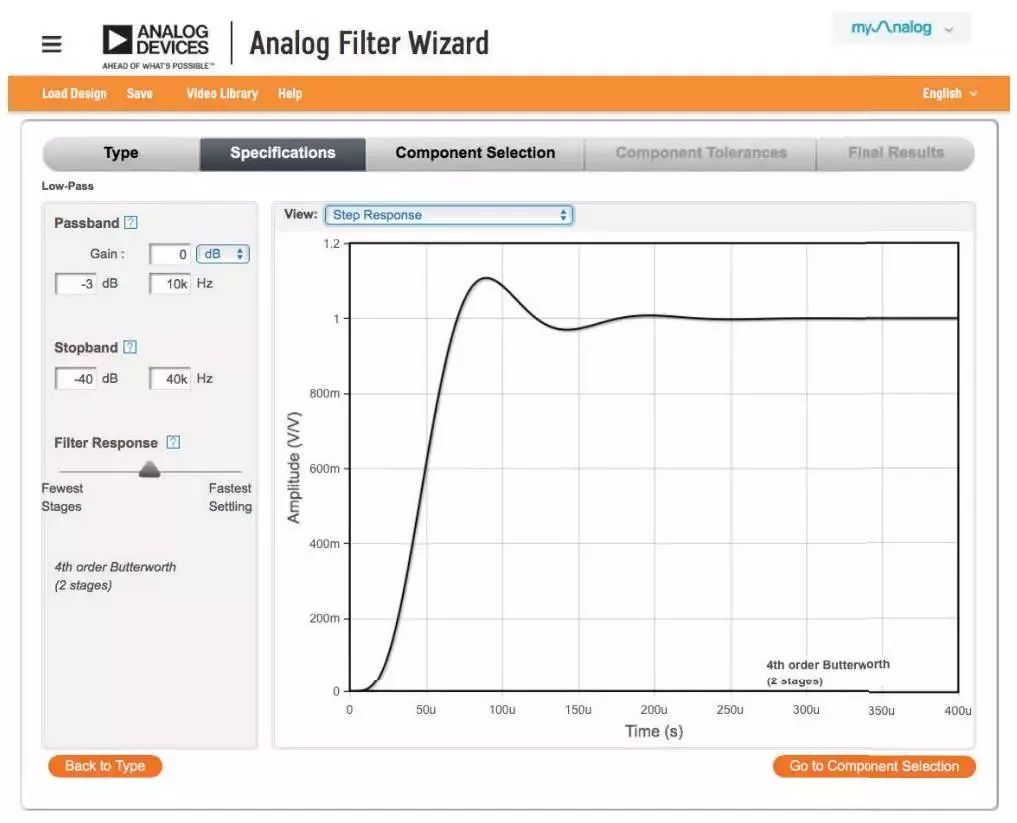 |
Figure 5. Step response of the filter
After the theoretical characteristics are determined, the next step is the circuit design, as shown in Figure 6. At this point, the Analog Filter Wizard tool gives recommendations based on the type of optimization specified, such as power, noise, or voltage range. You can choose to use the recommended device or choose your own.
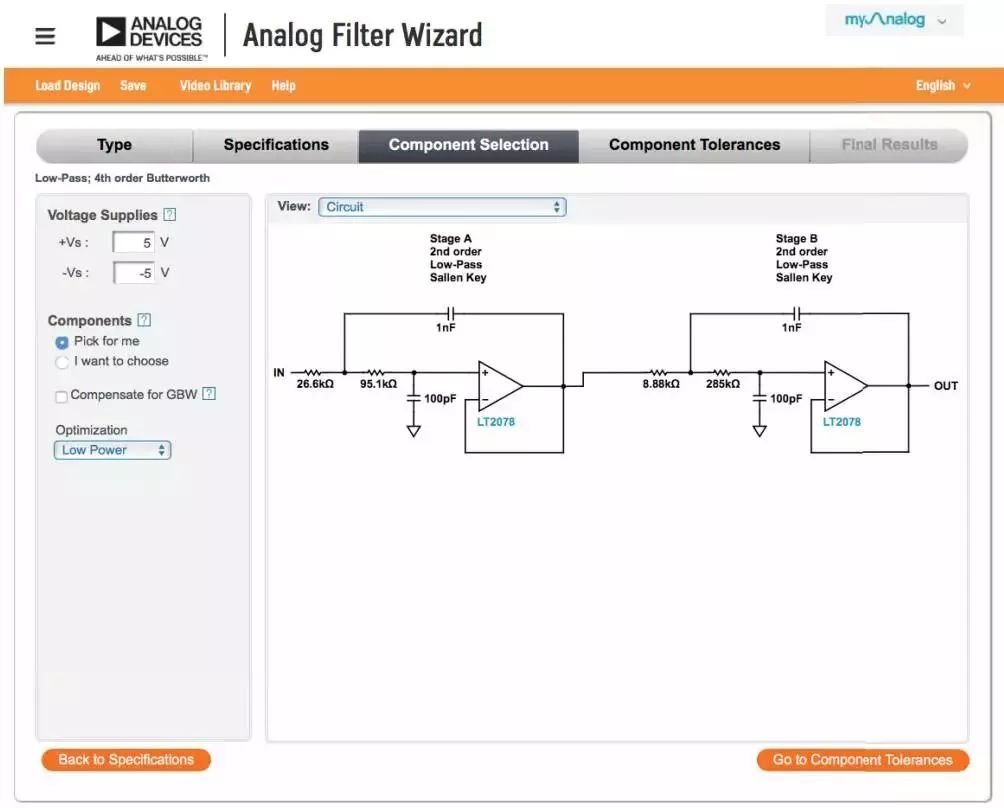 |
Figure 6. Component selection
While the analog filter wizard tool selects the most appropriate device for the desired characteristics, it may be difficult or impractical to find and use a device that is identical in its recommendation. Therefore, you can flexibly select the resistor and capacitor tolerances through the component tolerance function (Figure 7). At the same time, you can also see how the adjustment tolerance affects the performance of the filter.
 |
Figure 7. Defining component tolerances
Figure 8 shows the final circuit design using the correct amplifier for your circuit simulation or prototyping.
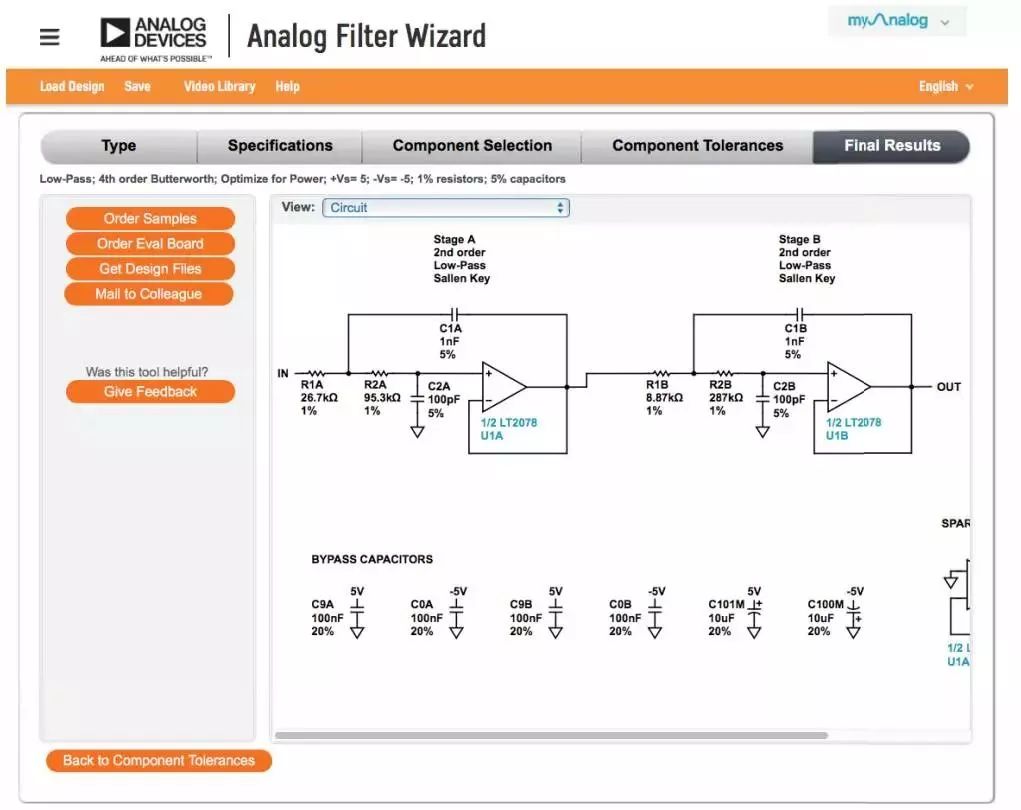 |
Figure 8. Final circuit
The Analog Filter Wizard tool is very practical and allows you to check the performance optimization of the filter at each step, from defining filter characteristics to defining tolerances. These features help fine-tune your design at every step of the process. They also offer greater flexibility, saving valuable effort by getting the best design with fewer iterations.
Compabile Models:
For Samsung:
For Galaxy S6, For Galaxy S6 Edge, For Galaxy S6 Edge+,
For Galaxy S6 Active, For Galaxy S6 Duos, For Galaxy Note Edge,
For Galaxy S7, For Galaxy S7 Edge, For Galaxy Note 5
For Galaxy S8, For Galaxy S8 Plus, For Galaxy Note 8
For Galaxy S9,For Galaxy S9 Plus
For Sony:
For Xperia Z4V, For Xperia Z3V
For Google:
For Nexus 4, For Nexus 5, For Nexus 6, For Nexus 7
For MOTORALA:
For Moto Droid Turbo, For Moto Droid Turbo 2, For Moto Droid 5
For NOKIA:
For Lumia 920, For Lumia 928, For Nokia Lumia 93, For Lumia 950, For Lumia 950 XL, For Lumia 1020, For Nokia Lumia 1050, For Nokia Lumia 822, For Nokia Lumia 735
For HTC:
For HTC ONE MAX T6, For HTC Incredible 4G, For HTC ONE mini 2, For HTC Droid DNA
For LG:
For LG Nexus 4, For LG Nexus 5, For LG G Pro, For LG D1L, For LG LTE2
For Iphone:
For Iphone8/X/XR/XS Max
For Others:
For YotaPhone 2, For Elephone P9000
Guangzhou HangDeng Tech Co. Ltd , http://www.hangdengtech.com